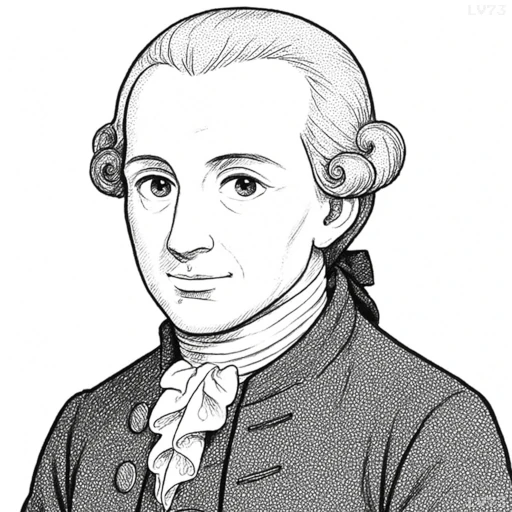“Experience without theory is blind, but theory without experience is mere intellectual play.”

- April 22, 1724 – February 12, 1804
- Born in Germany (East Prussia)
- Philosopher
table of contents
Quote
“Experience without theory is blind, but theory without experience is mere intellectual play.”
Explanation
In this quote, Immanuel Kant emphasizes the interdependence between experience and theory in the process of acquiring knowledge. He argues that experience alone, without the guidance of a theoretical framework, is insufficient for understanding the world because it lacks the structure needed to interpret and make sense of the raw data we encounter. Conversely, theory without the grounding of experience becomes mere speculation or intellectual exercise that has no connection to the real world. For Kant, true knowledge arises when empirical observation (experience) is combined with rational interpretation (theory), allowing us to construct meaningful, coherent understanding.
In the context of modern science, this idea remains profoundly influential. The scientific method itself is built on the integration of theory and experience—hypotheses (theories) are tested against empirical data (experience), and the results of these experiments shape and refine our theoretical models. For example, in medicine, theoretical knowledge about human biology and disease is continuously tested and refined through clinical trials and real-world observations. In psychology, both empirical research and cognitive theories work together to deepen our understanding of human behavior. Kant’s quote reminds us that, in both theory and practice, we must seek a balance where abstract concepts are meaningfully applied to and informed by the world around us.
Historically, this quote reflects Kant’s response to both empiricism and rationalism. Empiricists like Hume argued that knowledge comes only from sensory experience, while rationalists like Descartes believed that reason alone could lead to knowledge. Kant’s innovation was to propose that both experience and reason are essential and that they work together to create a fuller, more accurate understanding of the world. Today, this philosophy informs not just philosophical discussions on epistemology, but also educational practices, where learning is understood as a process of integrating theoretical knowledge with practical, hands-on experience. Kant’s perspective encourages us to value both practical experience and theoretical insights, ensuring that one informs and strengthens the other.
Would you like to share your impressions or related stories about this quote in the comments section?

